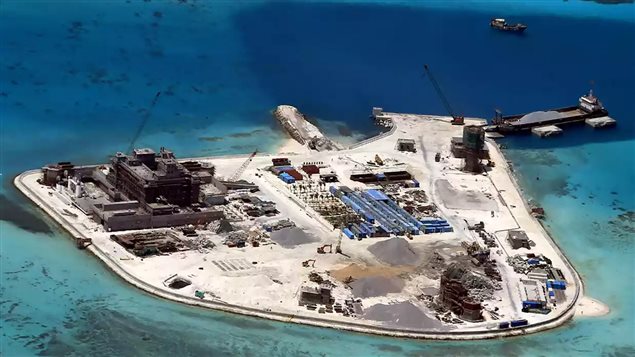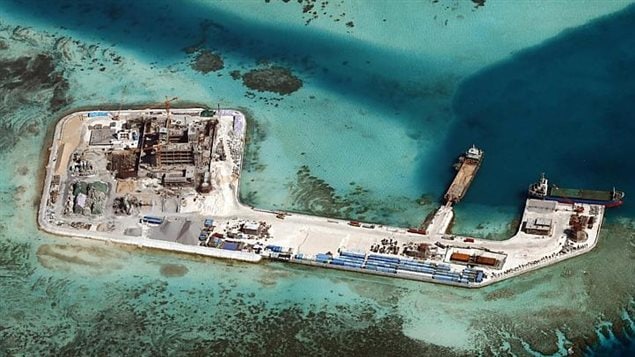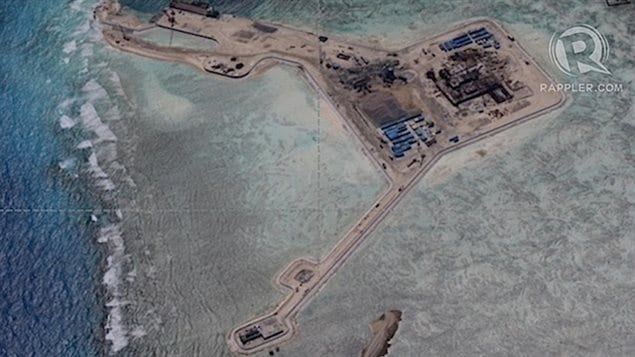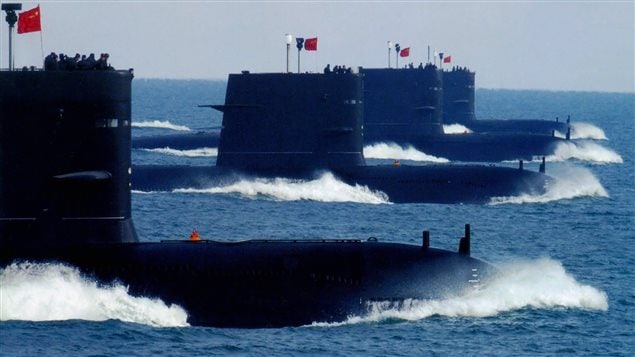China has been aggressively pursuing a policy of increasing its presence in the South China Sea. It has been taking over shoals and reefs in waters claimed by six neighbouring countries, especially those in Philippines waters and artificially building them into islands and claiming them as Chinese territory. It has also moved an oil rig into Vietnamese waters.
There have been several violent acts of intimidation and aggression by Chinese ships primarily against fishing boats from other countries.
Meanwhile the US has been challenging China’s claims by flying through airspace and sailing in waters China has claimed as part of its (new) territorial zone.
With the ruling by an international tribunal in the Hague very clearly dismissing all Chinese claims, the already tense situation has heated up.
Yesterday, in part-1 one Canadian expert, Robert Adamson, said the situation is already a tinderbox and could easily escalate. Today another Canadian expert is more hopeful that in spite of China’s bluster, their leaders will not over-react. (RCI- Part 1)
Michael Byers is an well-known authority in international law and the law of the sea, and author of several books on the subject. He is a professor and Canada Research Chair in Global Politics and International Law and the University of British Columbia in Vancouver
Listen
The decision against China’s claim was made by the Permanent Court of Arbitration under the auspices of the United Nations Convention on the Law of the Sea (UNCLOS).
China, which is a signatory to UNCLOS, has said in spite of its own ratification of the treaty and its rules, it will not recognize the court and calls the decision “null and void”, “a piece of trash”, and a “law-abusing farce”.
In recent years with its military buildup making it one of the top three militaries in the world, China has seemingly been pursuing an aggressive stance in the region gradually taking what it wants while intimidating others to back down rather than confront such a powerful entity.

However, a story in the the US, ‘Navy Times” said that the top American commander in the Pacific earlier this year said the US should adopt a more confrontational approach to Chinese activity in the region.

The outgoing Obama administration has been trying to put a lid on Adm. Harry Harris and other military leaders and not overly aggravate matters even as US ships and aircraft enter Chinese claimed areas.
The US attitude may change with the upcoming change in administration, and with it, the situation itself.

As for China’s initial brusque dismissal of the ruling, Byers says China will now have to decide whether it is a member of the international community that is based on promises being kept and respect of treaty obligations, or ignore international law and call into question its entire relationship with the rest of the world.
Byers says while China may be making angry noises in public, he hopes that wisdom will prevail and the Chinese will not engage in further provocative actions.
additional information-sources







For reasons beyond our control, and for an undetermined period of time, our comment section is now closed. However, our social networks remain open to your contributions.